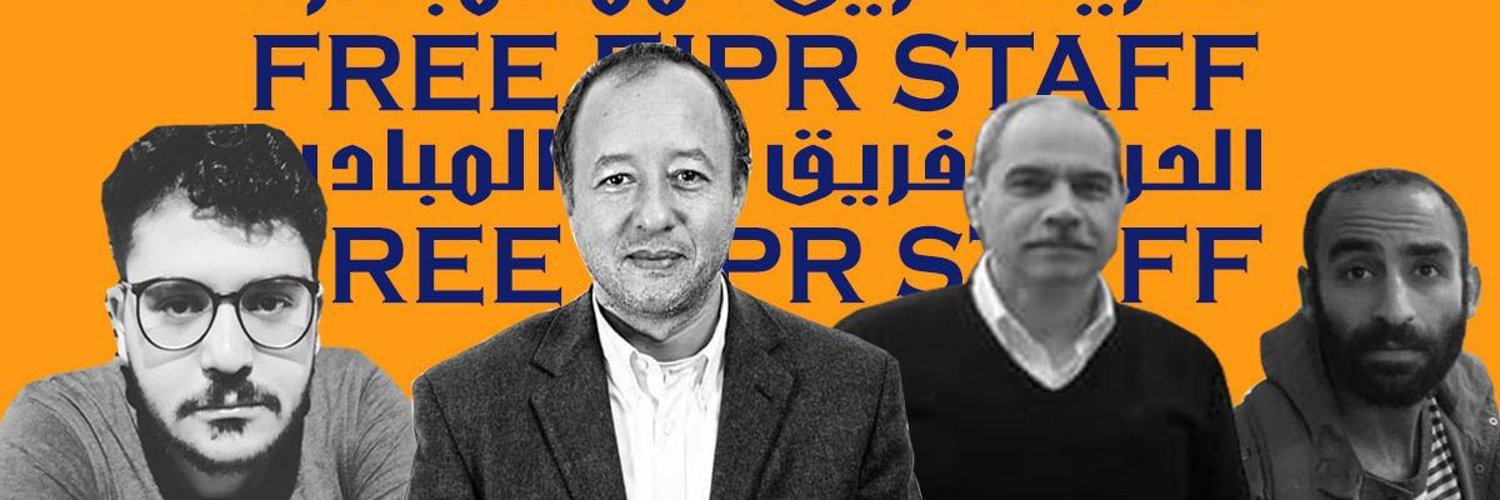In Bukavu, a woman protests in the streets against the authorities; the police shoot and…

Egypt, Appeal for Continued Support for Zaki and Egyptian Human Rights Defenders
An appeal for continued support for Patrick Zaki and human rights defenders and to ask for important changes in the relationship between Egypt and Europe. The initiative to collect signatures and support for EIPR, the organization Zaki collaborated with, was launched by Danilo De Biasio, Director of the Human Rights Festival, and Andrea Teti. Professor of International Relations with the Middle East at Aberdeen University.
“Recent stories about human rights battles teaches us that campaigns are important, that are needed so that detainees do not feel abandoned, and to urge diplomacy. Let’s do it in this case, too, so that the Italian government understands that it cannot ignore the systematic and fierce violation of basic rights in Egypt. And it cannot look the other way when Italian companies sign contracts with the al-Sisi regime,” stated De Biasio.
To sign the appeal: dirittiumaniegitto@gmail.com.
Below is the text of the appeal and the initial signatures.
No rights? No business transactions. There must be important changes in the relationship between Egypt and Europe.
The facts: on 3 November, 11 Western diplomats visited the offices of the Egyptian Initiative for Personal Rights (EIPR) for a briefing to discuss human rights and civil society in Egypt. A few days later three senior members of the EIPR were arrested: Muhammad Bashir, the Administrative Manager, Karim Ennarah, the director of criminal justice and Ghasser Abdel Razak, Director. All three of them, like Patrick Zaki, have been charged with blatantly vexatious accusations such as “terrorism”, and “spreading fake news”. On 22 November, the Egyptian student was given an umpteenth extension of his pre-trial detention who, since February, is among the tens of thousands imprisoned for “crimes of conscious”.
Is this just a coincidence? It’s clear that the arrests coincide with the publication of the EU Action Plan on Human Rights and Democracy 2020-2024. Whether it coincides or not, the facts prove that Europe’s choice to make dictators like Sisi “inescapable partners” is a bad choice because mild requests certainly do not change dictatorships into democracies.
For some time, Europe has been proclaiming – it did so for the EIPR arrests, too – that human rights are “fundamental values”, but when it comes to concretely sanctioning the regimes in the “Near East”, the European Union is silent. Yet, being the most important partner in the Southern Shore of the Mediterranean, a stern decision would hold a lot of weight.
Media outlets reported on a telephone call between the Italian prime Minister and the Egyptian President about the Regeni case – a case in which Egyptian authorities were never collaborative – but it seems that there has been now word about the EIPR case. France has recently carried out joint naval maneuvers with Egypt. When the “top” member states of the European Union behave like this in the face of blatant human rights violations, all European credibility falls apart.
Everything is justified in the name of pragmatism and national interest. Yet, it is clear to anyone that it is policy that doesn’t work. After the Arab revolts, restauration has further increased social inequalities to which regimes respond by eradicating civil and political rights. The attitude in Europe and in single member states is myopic. It would be wiser – and more correct – to act through courageous political and diplomatic decisions that promote rights and freedom and protect people and the local associations that defend them. Like, for example, EIPR.
Therefore, the appeal to the Italian government is to concretely support the protection of human rights in Egypt and show that the oppressive actions against Egyptian civil society are unacceptable.
Sponsors
Danilo De Biasio, Director of the Human Rights Festival
Andrea Teti, Associate professor, Aberdeen University, Scotland
Join us:
- Riccardo Noury, Portavoce di Amnesty International Italia
- Erasmo Palazzotto, Presidente della Commissione parlamentare d’inchiesta sulla morte di Giulio Regeni
- Beppe Giulietti, Presidente Federazione Nazionale della Stampa
- Gianluca Costantini (Channeldraw)
- Elly Schlein, Vice-Presidente Regione Emilia-Romagna
- Pippo Civati, Fondatore casa editrice People
- Mara Filippi Morrione, Portavoce associazione Amici di Roberto Morrione
- Vincenzo Vita, Presidente della Fondazione archivio audiovisivo del movimento operaio e democratico
- Fabiana Martini, Giornalista, Coordinatrice Articolo 21 del Friuli Venezia Giulia
- Antonella Napoli, Direttora del giornale Focus on Africa
- Cristina Perozzi, avvocata
- Donato Ungaro, Portavoce Articolo 21 Emilia Romagna
- Désirée Klain, Articolo21 Campania e Imbavagliati, Festival Internazionale di Giornalismo Civile
- Fabiana Pacella, Articolo 21 Puglia e direttivo Assostampa Lecce
- Gianmario Gillio, dell’Agenzia stampa Nev – Fcei (Federazione delle chiese evangeliche in Italia)
- Tiziana Ciavardini, giornalista
- Rocco Cerone, Segretario del sindacato dei giornalisti del Trentino Alto Adige
- Lorenzo Basso, Giornalista
- Monica Andolfatto, segretaria sindacato veneto dei giornalisti
- Nicola Chiarini, giornalista, sindacato veneto giornalisti
- Gennaro Gervasio, Professore Associato, Università di Roma III
- A titolo di Direttivo della Società Italiana per gli Studi sul Medio Oriente (SeSaMO) ed a titolo singolare aderiscono:
- Monica Rucco, Professoressa Ordinaria, L’Orientale, Napoli;
- Daniela Pioppi, Professoressa associata, L’Orientale, Napoli
- Rosita Di Peri, Professoressa associata, Università di Torino
- Samuela Pagani, Professoressa associata, Università del Salento
- Francesca Biancani, RTD-B, Università di Bologna
- Elisa Giunchi, Università degli studi di Milano
- Patrizia Manduchi, Dipartimento di Scienze politiche e sociali, Università di Cagliari
- Matteo Capasso, Max Weber Research Fellow, European University Institute
- Tiziana Ferrario, giornalista e scrittrice
- Graziella Di Mambro, giornalista
- Sandro Mezzadra, Ordinario di Filosofia Politica, Università di Bologna
- Valerio Evangelisti, Scrittore, premio Urania per la letteratura
- Nicola Melis, Professore Associato, Università di Cagliari





